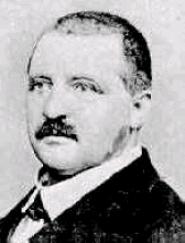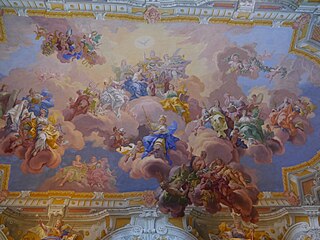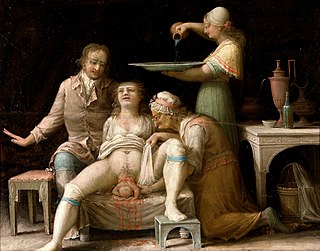
The Magnificat, WAB 24 is a setting of the Magnificat for SATB choir and soloists, orchestra and organ composed by Anton Bruckner in 1852.

The Fest-Kantate Preiset den Herrn, WAB 16, is a festive cantata composed by Anton Bruckner in 1862 for the celebration of the laying of the foundation stone of the new Mariä-Empfängnis-Dom of Linz.

Herz Jesu-Lied, WAB 144, is the second of two motets of Anton Bruckner's St. Florian period, which is of uncertain authorship. If Bruckner was the composer, it was composed presumably in 1845-1846.

The Mayer Cantata, WAB 60, is a cantata composed by Anton Bruckner in 1855. It is the second of three larger-scale occasional compositions, and the composer's first extended composition for large wind ensemble and choir.

The Arneth Cantata, WAB 61, is a cantata composed by Anton Bruckner in 1852.

The cantata Entsagen (Renunciation), WAB 14, is a cantata composed by Anton Bruckner in c. 1851.

Vergißmeinnicht (Forget-me-not), WAB 93, is a cantata composed by Anton Bruckner in 1845.

The Volkslied, WAB 94, is a patriotic song composed by Anton Bruckner in 1882 for a competition for a Hymne für das Deutsche Volk in Österreich.

"Ständchen" ("Serenade"), WAB 84.2, is a Lied composed by Anton Bruckner in c. 1846.

Der Abendhimmel, WAB 55, is a song composed by Anton Bruckner in 1862.

Herbstlied, WAB 73, is a romantic song composed by Anton Bruckner in 1864. The song, scored for men's choir and two soprano soloists with piano accompaniment, depicts an autumn walking with nightingale song.

Du bist wie eine Blume, WAB 64, is a song, which Anton Bruckner composed in 1861.

"An dem Feste", WAB 59a, is a song composed by the 19-year-old Anton Bruckner in 1843 during his stay as schoolteacher's assistant in Kronstorf. In 1893, near the end of his life, Bruckner modified slightly its music score and let Karl Ptak put another text on the song, with as title "Tafellied", WAB 59c.

Das Lied vom deutschen Vaterland, WAB 78, is a patriotic song composed by Anton Bruckner in c. 1845 during his stay in St. Florian.

Der Lehrerstand, WAB 77, is a song composed by Anton Bruckner in c. 1847 during his stay in Sankt Florian.

Die Geburt, WAB 69, is a song composed by Anton Bruckner in 1851 during his stay in St. Florian.

Des Dankes Wort sei mir vergönnt, WAB 62, is a song composed by Anton Bruckner during his stay in Sankt Florian.

Wie bist du, Frühling, gut und treu, WAB 58 is a lied composed by Anton Bruckner in 1856 on a text of Oskar von Redwitz.


















